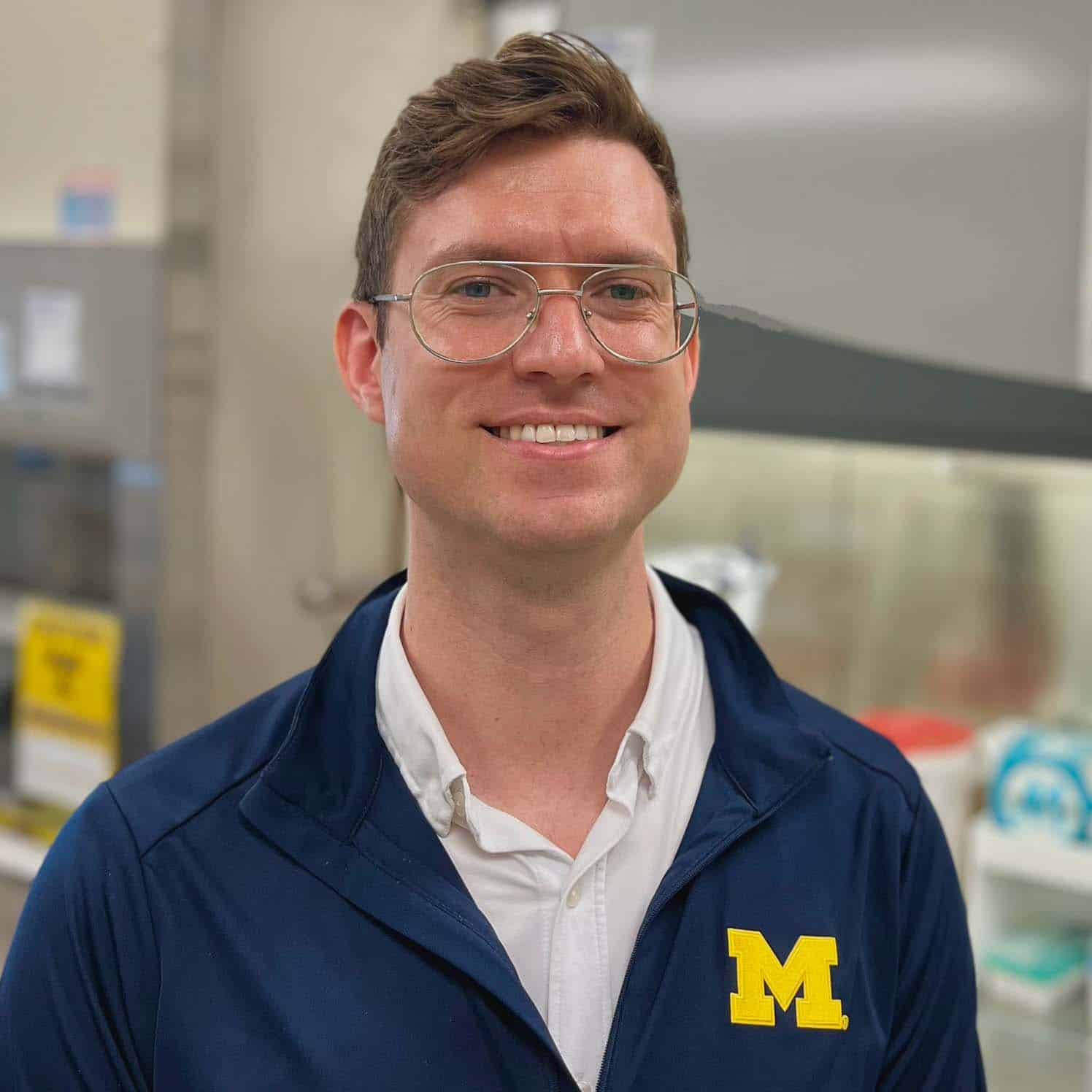Location
NCRC-B28 G070W
2800 Plymouth Road, Ann Arbor, MI, 48109-2800
Phone
Primary Website
Education
Northwestern University
Ph.D. in Chemical Engineering, 2021
M.S. in Biotechnology, 2014
University of Southern California
B.S. in Chemical Engineering, 2012
Experience
University of Michigan
Department of Chemical Engineering
Assistant Professor, January 2025 –
Lawrence Berkeley National Laboratory
Postdoctoral Researcher, 2021-2024
Manus Bio
R&D, 2014-2015, 2019
Research Interests
- Metabolic Engineering
- Synthetic Biology
- Microbial Ecology
- Natural Product Synthesis
Increasingly available and sophisticated genetic engineering tools have led to the creation of the fields of synthetic biology and metabolic engineering – the rewiring or “engineering” of biological systems towards a specific design goal that meets a societal need (diagnostics, therapies, remediation, etc.). Within the context of Chemical Engineering, the development of these fields has provided new opportunities for sustainable chemical synthesis. Specifically, by leveraging enzymatic chemistry within biological systems, we can produce chemical goods with processes that operate near ambient temperature and pressure, avoiding the use of solvents, heavy metals, strong acids, and strong basis. In recent decades, these approaches have shown significant promise, yet have had limited commercial translation. In order for full sustainability impact of synthetic biology and metabolic engineering to be realized, remaining challenges must be addressed.
The Biggs lab aims to investigate a range of avenues to improve biochemical synthesis to this end. First, we aim to develop microbial systems for the incorporation of renewable waste into traditional metabolic engineering workflows. This involves developing genetic tools for non-model organism that are better suited for use with renewable feedstocks and harsh process conditions and involves working with and developing synthetic microbial communities for these purposes. Second, we aim to engineering microbial systems to be more efficient and robust, particularly in scaled systems, targeting the removal, bypass, or repurposing of unnecessary pathways and cellular systems. Third, we aim to incorporate additional chemistries, including novel synthetic biochemical pathways, in microbial systems for complex chemical synthesis, with a particular focus on natural product synthesis. Together, we hope these efforts help synthetic biology and metabolic engineering make a meaningfully impact on society’s transition to a circular economy.
Publications
Selected Publications
- B. W. Biggs, H. S. Alper, B. F. Pfleger, K. E.J. Tyo, C. N.S. Santos, P. K. Ajikumar, Gregory Stephanopoulos. Enabling commercial success of industrial biotechnology. Science. 2022.
- B. W. Biggs, S. Bedore, E. Arvay, S. Huang, H. Subramanian, E. A. McIntyre, C. V. Duscent-Maitland, E. L. Neidle, and K. E.J. Tyo. Development of a genetic toolset for the highly engineerable and metabolically versatile Acinetobacter baylyi ADP1. Nucleic Acids Research. 2020.
- B. W. Biggs, J. E. Rouck, A. Kambalyal, C. G. Lim, M. De Mey, C. Starks, M. O’Neil, A. Das, P. K. Ajikumar. Orthogonal Assays Clarify the Oxidative Biochemistry of Taxol P450 CYP725A4. ACS Chemical Biology. 2016.
- B. W. Biggs, C. G. Lim, K. Sagliani, S. Shankar, G. Stephanopoulos, M. De Mey, P. K. Ajikumar. Overcoming Heterologous Protein Interdependency to Optimize P450-Mediated Taxol Precursor Synthesis in Escherichia coli. Proceedings of the National Academy of Sciences. 2016.
- B. W. Biggs, B. De Paepe, C. N. S. Santos, M. De Mey, and P. K. Ajikumar. Multivariate modular metabolic engineering for pathway and strain optimization. Current Opinion in Biotechnology. 2014.
